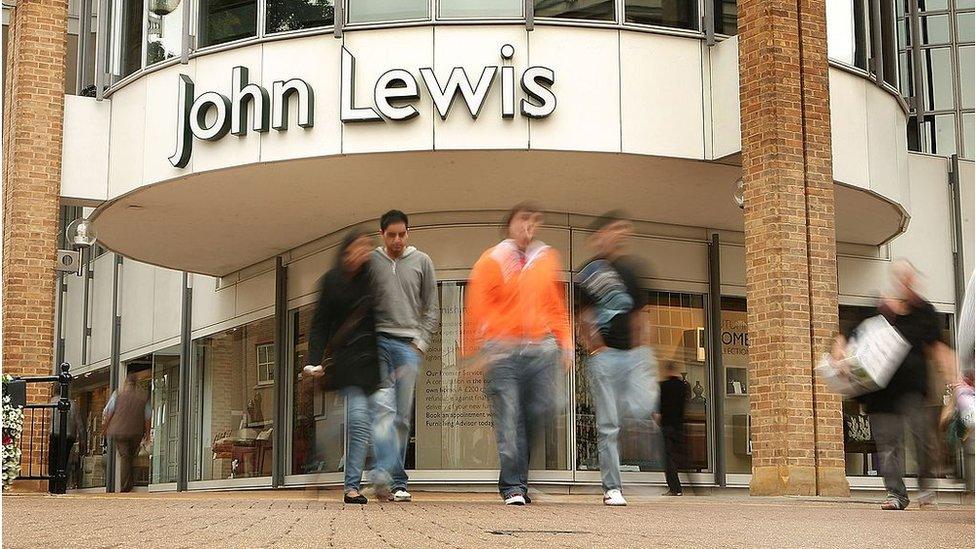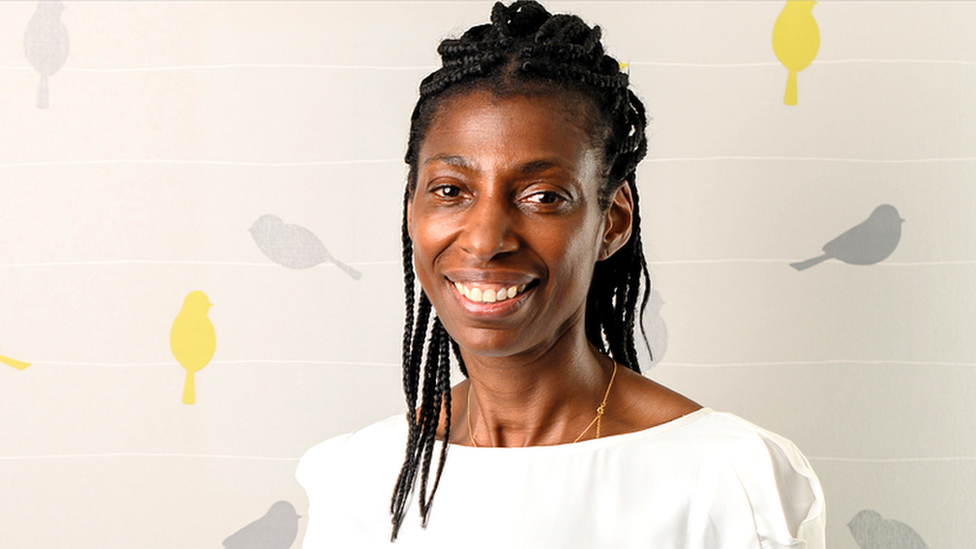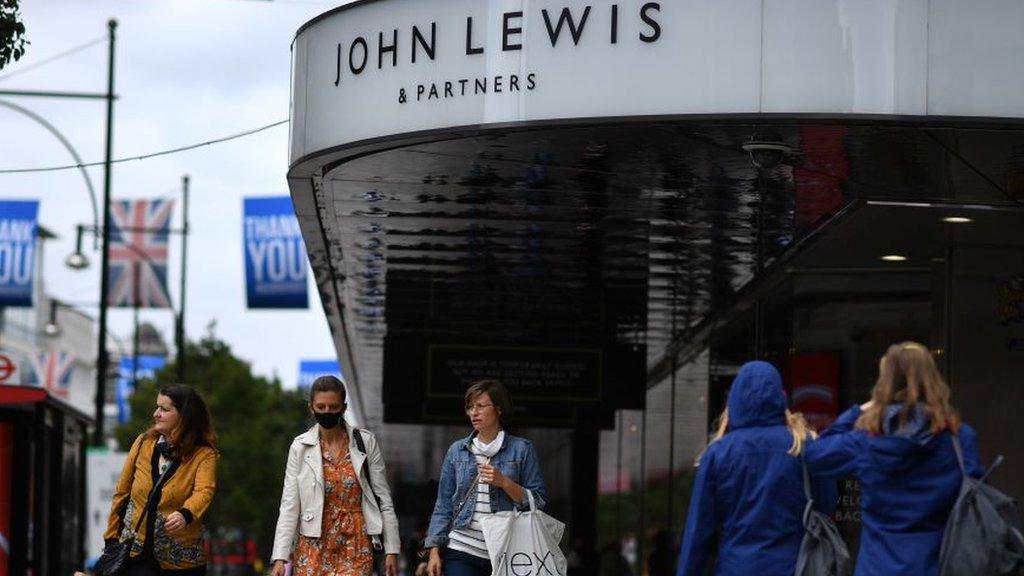John Lewis and DFS warn shoppers are spending less
- Published

Retailers John Lewis and DFS have said customers are cutting back on the amount they spend due to the rising cost of living.
John Lewis said while shopper numbers were higher than last year, customers were spending less and avoiding buying as many "big ticket" items.
"No one could have predicted the scale of the cost of living crisis," said John Lewis boss Dame Sharon White.
The company reported a loss of £99m, external for the first half of its trading year.
Sofa retailer DFS Furniture reported slumping annual profits, external due to a dip in consumer spending, saying order numbers had "softened markedly" as shoppers tightened their belts.
Also on Thursday, fashion chain H&M filed lower-than-expected quarterly sales., external, but said it had seen a "better start for the autumn collections than last year".
'Unprecedented inflation'
Dame Sharon said customers were less likely to splash out on "big ticket" household items and were moving their spending to dining out at restaurants and to holidays.
"No one could have predicted the scale of the cost of living crisis that has materialised, with energy prices and inflation rising ahead of anyone's expectations," she said.
"As a business, we have faced unprecedented cost inflation across grocery and general merchandise."
However, she said it was "not unusual" for the John Lewis Partnership to report a loss in the first half of the year as its trading is "heavily skewed" to Christmas, with most of its profits made in the final months of the year.
In the first half of last year, the partnership reported a loss of £29m.

Dame Sharon White said the outlook was "highly uncertain"
The company said its losses this year were due to a combination of rising wholesale prices for goods not being passed on to customers, households cutting back on spending, and the "unwinding" of Covid shopping habits.
It said it chose to "forgo" profit to help staff and customers through the cost-of-living crisis. The employee-owned group announced a £500 one-off payment to full-time workers, with a pro-rata amount for those working part-time, to support staff.
Focus on essentials
Susannah Streeter, senior investment and markets analyst at Hargreaves Lansdown, said the "fight is on for consumers' remaining disposable cash".
She said DFS was the "latest" company to warn of the the "painful effects" of inflation.
"DFS is not only having to cope with a slowdown due to purchases which were brought forward during the pandemic, but now as household bills mount for essentials like food and heating, a plush new sofa is a luxury many consumers are happy to do without," she said.
Overall UK inflation, which measures the rate at which prices rise, is running near a 40-year high, but the rate eased for the first time in almost a year in August, slipping to 9.9% from July's 10.1%.
Food prices have been increasing around the world following Russia's invasion of Ukraine, which has been one of the factors pushing up prices at supermarket tills, and Waitrose said its sales were down 5% on last year, with basket sizes "smaller by nearly a fifth".
The Bank of England has warned inflation could top 13% this year, and is expected to keep increasing interest rates in an attempt to control it.
Outlook 'highly uncertain'
John Lewis said its fashion sales increased as people shopped for travel and summer breaks. However, revenue from its home and technology ranges, which performed well during the height of the pandemic, declined.
The company said the impact of the rise in the cost of living, specifically around energy costs, was "evident in patterns of spending", with sales of its own-brand items rising 28% and energy saving goods, such as air fryers and smart thermostats, increasing.
Dame Sharon said the outlook for the rest of the year was "highly uncertain owing to the cost of living crisis and its impact on discretionary spending as well as criticality of our Christmas trading period".
She said a successful Christmas was "key for the business", adding a bumper festive period beyond previous years was needed to "generate sufficient profit" for the company to be able to pay staff their usual bonus.
Last month, Dame Sharon told the BBC that an exodus of over-50s who left the workforce during the Covid pandemic had fuelled wage inflation.
The UK has seen one million people, mostly in their 50s, leave work since the start of the Covid-19 outbreak, with job vacancies at a record high.
It has meant employers who want to attract and retain staff are under pressure to lift wages, which in turn fuels inflation.
- Published9 August 2022

- Published4 July 2021
